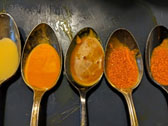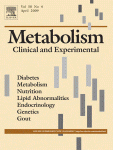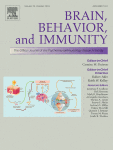WBC- 6.86What's your white blood cell count like?
Neutrophil - 65.9%
Lymphocyte - 22.30%
Monocyte - 8.9%
Eosinophil - 2.3%
Basophil - 0.60%
Follow along with the video below to see how to install our site as a web app on your home screen.
Note: This feature may not be available in some browsers.
Click Here if you want to upgrade your account
If you were able to post but cannot do so now, send an email to admin at raypeatforum dot com and include your username and we will fix that right up for you.
WBC- 6.86What's your white blood cell count like?
Yes, it is a mixed bag. It is very context-specific, and allopathic medicine won't help except be a palliative. As that is all can be done when the doctor has a very short time to understand each patient's context. But even with holistic care, it is difficult to fix, as I've learned. I thought I can do a better job, but it's taken me 20 years, and I'm still working at it. Until I really solve my hypertensive condition by identifying and removing the root cause, I'm not going to say the fix is around the corner. A lot of blind leads have come and gone. Along the way though, I get to gain a better understanding and appreciation of how the body works. How the body adapts is remarkable. Despite the seeming gravity of my blood pressure being off the charts, which would shock ER nurses and internists, having a high metabolism gives me the energy to cope. I am not afraid of COVID because I've not been sick of flu for the past 20 years, nor of fever, which would not be a big deal for me except that prior to that I was having flu once or twice a year.blood pressure is a proxy for health to doctors who are schills for Big pharma.,
However nobody has done good studies that show blood pressure medication lowers mortality all cause.
They have shown that medications can modestly lower mortality from heart attacks and strokes.
people with high blood pressure generally are very sick with low metabolisms stuck in what Dr. Paet calls slime metabolism, glycolysis in the presence of low oxygen begetting high lactic acid.
So studies done on these sick people may show some benefit of blood pressure medications but it really doesn’t mean anything to healthy people.
Where else can you see posts like this on a nutrition forum?@Jam @Perry Staltic Slept so soundly last night, without ever waking up to pee. I did not expect this, but this is a breakthrough for me.
I took 6.4mb MB with DMSO (to get a 10% DMSO mix- to increase tissue absorption) together with 150mg SSKI (6 drops). The rest of the day I was up and about so it wasn't until the evening that 1 took 500mg Ascorbic Acid and went to bed without a meal. I was tired also. The reason I didn't take the mb+sski that night was because it further increased my BP and at the same time it lowered my perfusion index (PI)*.
To my surprise, I did not wake up to pee and had the most restful sleep in a while. I don't if the fast helped, but it may have. But my thinking now is that I should just get a large dose of mb** (with SSKI) in the morning, and then throughout the rest of the day just take AA in 500mg AA powder (in empty stomach) whenever I get the chance (hard to stick to a sked).
For now, that is what I will stick with, although the MB/SSKI combo could be replaced by another antibacterial combo that is appropriate. The choice of antibacterial is based on the ability to kill the catalase-positive bacteria, which I believe to be aggregibacter actinomycentemcomitans in the media of my blood vessels (which now I believe to be systemic, and not confined to my kidneys' glomerular capillaries), such that it the condition also finds expression as temporal arteritis. I have been led into thinking this is a kidney issue only because I am excreting some albumin in my urine, and also because my serum creatinine is high***
The ascorbic acid can also be replaced by or complemented with by another antioxidant such as astaxanthin and NAC.
To make a long story short, the nighttime urination riddle I've been dealing with may just be a thing of the past. I think that when there is bacterial infection, water is being generated as the immune system attempts to get rid of the bacteria. When it is successful, water is produced. When it isn't, water is produced as well. When drugs are taken to eliminate or reduce the bacteria, water is generated as well. In all these, I think it's because redox reaction is going on, and very often water is the product of redox reaction.
I cannot explain everything yet though. I know the catalase-positive bacteria is by itself generating a lot of water as catalase converts hydrogen peroxide to water as it blunts the creation of ROS needed for effective phagocytosis. That dosing high enough MB**** (perhaps with SSKI helping- not sure) is effectively killing the bacteria (or neutralizing it) and making it possible for effective phagocytosis to occur, and if this is the case, and if I continue with the treatment, I would be eliminating the root cause of my high blood pressure. Although high blood pressure is merely the outward expression of something deeper percolating inside my tissues, which is chronic inflammation coming from unresolved attempts by neutrophils and macrophages to eliminate bacteria and immune complexes, and due to this, chronic oxidative stresses is happening. Luckily for me, I have enough antioxidants stores with my body responding well to it. That albumin is being used as an antioxidant is not a bad thing. It is better to lose the albumin that see my tissues destroyed by oxidative stress. And because albumin is being used, my blood pressure is higher to compensate for the low blood volume resulting from albumin loss.
*I've began to use the PI together with my heart rate. Heart rate alone is an inadequate proxy for heart pumping quality as it coud be increased due to poor pumping effiiency, with the higher heart rate used to compensate for an inefficient pump. The PI measure the ratio of pusatile flow as a ratio of total blood flow. It is an indication of how much the heart pump is contributing to total blood flow (as blood flow is not totally dependent on the heart). The higher the PI, the better. It is the quantitative version of feeling the pulse, where an herbal doctor can determine the strength and consistency of the strength of the pulse, something which heart rate measurement does not take into account.
**the mb has some dmso so it's more like mb in 10%dmso to increase absorption into tissues
***but my creatinine can appear to be high by virtue of having low blood volume - given the calculation for serum creatinine is really total serum creatinine in blood in the body over total blood volume). If blood volume is low, serum creatinine readings would be high even if total serum creatinine is just normal.
****Methylene blue was been being used long ago as a treatment for UTI. It is very effective and bacteria does not gain resistance to it. But it came into disuse after pharma discovered other ways to deal with UTI, MB is effective and cheap and gets added to the list of discontinued substances whose only defining feature is that if was too effective and too low in cost. Starpharm currently has a product called Uribel which incorporates methylene blue in its formulation. From it, I could see methylene taken in 4 x 10mg doses.
The body is a web of interrelationships. I try to keep it simple, but it's still boggles the mind. Thanks.Where else can you see posts like this on a nutrition forum?
Yes, it is a mixed bag. It is very context-specific, and allopathic medicine won't help except be a palliative. As that is all can be done when the doctor has a very short time to understand each patient's context. But even with holistic care, it is difficult to fix, as I've learned. I thought I can do a better job, but it's taken me 20 years, and I'm still working at it. Until I really solve my hypertensive condition by identifying and removing the root cause, I'm not going to say the fix is around the corner. A lot of blind leads have come and gone. Along the way though, I get to gain a better understanding and appreciation of how the body works. How the body adapts is remarkable. Despite the seeming gravity of my blood pressure being off the charts, which would shock ER nurses and internists, having a high metabolism gives me the energy to cope. I am not afraid of COVID because I've not been sick of flu for the past 20 years, nor of fever, which would not be a big deal for me except that prior to that I was having flu once or twice a year.
The single most important thing for my health has been the steady improvement of my blood sugar regulation, which only happens with good blood sugar metabolism. As I see it, blood sugar regulation gives us the window to how well our body metabolizes blood sugar. From that, acid-base balance follows as a result given the CO2 being produced to provide further for homeostatic balance. The rest would be easier - eating well to be free from deficiencies, being free of toxins, and of pathogenic infection. Not that blood sugar metabolism can't be affected by toxins and pathogens.
So Ray Peat's singular focus on blood sugar metabolism is a lesson I learned well. Merely doing cold turkey for 4 years on PUFAs improved my blood sugar metabolism. I have since got rid of my allergic rhinitis. It's been 5 years of being allergy free.
So, I believe optimum blood sugar metabolism is the foundation from which health is maintained. It is the anchor that keeps the ship from drifting away and getting lost. It allows the body to adapt well to whatever condition it has. Without good sugar metabolism, adaptation will be more difficult to come by.
Yes, it is a mixed bag. It is very context-specific, and allopathic medicine won't help except be a palliative. As that is all can be done when the doctor has a very short time to understand each patient's context. But even with holistic care, it is difficult to fix, as I've learned. I thought I can do a better job, but it's taken me 20 years, and I'm still working at it. Until I really solve my hypertensive condition by identifying and removing the root cause, I'm not going to say the fix is around the corner. A lot of blind leads have come and gone. Along the way though, I get to gain a better understanding and appreciation of how the body works. How the body adapts is remarkable. Despite the seeming gravity of my blood pressure being off the charts, which would shock ER nurses and internists, having a high metabolism gives me the energy to cope. I am not afraid of COVID because I've not been sick of flu for the past 20 years, nor of fever, which would not be a big deal for me except that prior to that I was having flu once or twice a year.
The single most important thing for my health has been the steady improvement of my blood sugar regulation, which only happens with good blood sugar metabolism. As I see it, blood sugar regulation gives us the window to how well our body metabolizes blood sugar. From that, acid-base balance follows as a result given the CO2 being produced to provide further for homeostatic balance. The rest would be easier - eating well to be free from deficiencies, being free of toxins, and of pathogenic infection. Not that blood sugar metabolism can't be affected by toxins and pathogens.
So Ray Peat's singular focus on blood sugar metabolism is a lesson I learned well. Merely doing cold turkey for 4 years on PUFAs improved my blood sugar metabolism. I have since got rid of my allergic rhinitis. It's been 5 years of being allergy free.
So, I believe optimum blood sugar metabolism is the foundation from which health is maintained. It is the anchor that keeps the ship from drifting away and getting lost. It allows the body to adapt well to whatever condition it has. Without good sugar metabolism, adaptation will be more difficult to come by.

We have to keep plugging away. These issues have a life of their own. Overcoming them is one of their life's main goals lol!you can do it. I had over 20 years of terrible headaches that are gone about 90% now. I never would’ve thought that the solution would be hydrogen. Just persistence in trying different things and theories, which you are doing, often works.
Yes, even having sleep troubles (as I had been having lately) , keeps my liver from replenishing glycogen stores. And my blood sugar would slip into hypoglycemic territory. This messes with my energy levels during the day.I completely get it. That means your liver has become healthier. I think fatty liver keeps our blood sugar from being properly regulated due to poor liver glycogen storage.
I think hypoglycemia is an enormous hidden issue. I have been religiously taking my oral temps for several years all through the day and in the past I would suffer a severe hypo episode and never know it, and this happened probably every day or multiple times a day. I knew it because my temps would plunge into the 35.5C range!
After coffee, after eggs for breakfast, especially.
A strong metabolism will fix that. The final piece to the jigsaw puzzle for me was in totally eliminating PUFA. It may be something else for you. I was very easily subject to allergic rhinitis. But ever since I finished the requisite 4 years of PUFA depletion, and continuing to maintain it, I have had no issue with allergic rhinitis for 5 years already.I wish I could get rid of my severe seasonal rhinitis and eye tearing.
Hydrogen is also a mystery for me. But oftentimes, we don't understand things but it doesn't keep us from using them if empirical evidence supports it.I think hydrogen gas/water would probably fix a lot of people's mysterious problems. For my headaches it started working immediately, although it was a 20% improvement, but when I persisted and used higher doses over a few months the headaches largely went away.
I think the hydrogen works on a profound mitochondrial level. I told Dr. Peat about it and he responded:
"I don’t know how it works, but it could be providing energy to mitochondria that have been blocked."
Hydrogen is incredibly powerful and covers so many ailments.
After Dr. Peat's remark, I found this study:

Inhalation of Hydrogen of Different Concentrations Ameliorates Spinal Cord Injury in Mice by Protecting Spinal Cord Neurons from Apoptosis, Oxidative Injury and Mitochondrial Structure Damages
Abstract. Background/Aims: Hydrogen selectively neutralizes reactive oxygen species (ROS) and ameliorates various ROS-induced injuries. Spinal cord injury (SCI) is a serious injury to the central nervous system, and secondary SCI is closely related to excessive ROS generation. We hypothesized...www.karger.com
Background/Aims: Hydrogen selectively neutralizes reactive oxygen species (ROS) and ameliorates various ROS-induced injuries. Spinal cord injury (SCI) is a serious injury to the central nervous system, and secondary SCI is closely related to excessive ROS generation. We hypothesized that hydrogen inhalation ameliorates SCI, and the mechanism of action may be related to the protective effects of hydrogen against oxidative stress, apoptosis, and mitochondrial damage.
Methods: Mechanically injured spinal cord neurons were incubated with different concentrations of hydrogen in vitro. Immunofluorescence staining and transmission electron microscopy were used to confirm the protective effects of hydrogen. ROS and related proteins were detected with dihydroethidium fluorescence staining, enzyme-linked immunosorbent assays, and western blotting. Terminal deoxynucleotidyl transferase dUTP nick end labeling assays, flow cytometry, and western blotting were used to detect neuronal apoptosis. ATP concentrations, Janus Green B staining, and mitochondrial permeability transition pore (mPTP) status were assessed to investigate mitochondrial damage. RNA sequencing was performed to screen potential target genes of hydrogen application. Hydrogen was administered to mice after spinal cord contusion injury was established for 42 days. The Basso Mouse Scale (BMS) and footprint analyses were used to assess locomotor functions, and immunofluorescence staining of the injured spinal cord segments was performed to detect oxidative stress status.
Results: Spinal cord neurons were preserved by hydrogen administration after mechanical injury in a dose-dependent manner. ROS generation, oxidative stress injury-related markers, and the number of apoptotic neurons were significantly reduced after hydrogen treatment. The ATP production and mPTP function in injured neurons were preserved by hydrogen incubation. The expression levels of Cox8b, Cox6a2, Cox7a1, Hspb7, and Atp2a1 were inhibited by hydrogen treatment. BMS scores and the footprint assessment of mice with SCI were improved by hydrogen inhalation.
Conclusions: Hydrogen inhalation (75%) ameliorated SCI in vivo and attenuated neuronal mechanical injuries in vitro, and its protective effect on spinal cord neurons was exerted in a dose-dependent manner. The underlying mechanisms included reducing ROS generation and oxidative stress, inhibiting neuronal apoptosis, and restoring mitochondrial construction and function. Cox8b, Cox6a2, Cox7a1, Hspb7, and Atp2a1 were identified as potential target genes of hydrogen treatment.
To tell you the truth, I have never checked my insulin levels.@yerrang Have you ever checked your insulin metabolism? I know here in the Peat sphere people dislike the idea of insulin resistance but I think there is a solid science behind it. Of course matters are very different then what some of the low carb people claim that you just have to eat carbs to get IR but that is another story.
Even lowering insulin via drug reduced BP: High-Dose, Diazoxide-Mediated Insulin Suppression Boosts Weight Loss Induced by Lifestyle Intervention
HbA1C is an extremely poor measure of it. You could do HOMA-IR + 1h postprandial glucose + fasted triglycerides which has around a 0.7 correlation with HEC.

Thanks, lowering insulin is a solution thst would apply more to people with blood sugar issues. It would not be the direction to take for someone without a. blood sugar problem. The probability my BP issues stem from insulin issues is very low.Even lowering insulin via drug reduced BP: High-Dose, Diazoxide-Mediated Insulin Suppression Boosts Weight Loss Induced by Lifestyle Intervention
What do those acronyms mean?You could do HOMA-IR + 1h postprandial glucose + fasted triglycerides which has around a 0.7 correlation with HEC.
Thanks.@yerrag
HOMA = Homeostatic Model Assessment
HEC = Hyperinsulinaemic-Euglycaemic Clamp
IR = Insulin Resistance
I thought the same that IR issues are obvious (e.g. fat, high blood glucose or hba1c). However, recently I had to change my mind about it. There are a lot of "healthy", fit and young looking people with insulin resistance and great looking glucose levels. The issue is that it may take 10 years from the beginning of insulin resistance to show up in the regular blood work.
Insulin is anti-inflammatory and also needed in your immune cells. Thus, when your cells have issues with the insulin uptake all sorts of problems break lose. Immune function goes down, inflammation goes up. When this continuous for long enough disease symptoms show up like dysbiosis, metabolic syndrome, cvd issues. The problem is actually even bigger as some cells are still insulin sensitive while others are not. Thus, you even get hyperinsulinemia in some cells...


The papers show the effects of high insulin, and the assumption you make is that the hypoglycemia is the result of hyperinsulinemia. But is that is a limited view of causality. I could be simply lacking glycogen stores as I had been having sleep issues for a long time, wherein I had to wake up as much as 4x in a night to urinate. The loss of glycogen stores would easily result, and this would impair the ability of the liver to supplement the blood glucose with new glucose supply from glycogen stores.What you are doing is way better than HbA1c and this data shows something very important. While you do not spike your blood glucose excessively high anymore, the dip below the baseline is worrying. From the papers you can see its connection to inflammation.

Proinflammatory cytokines in response to insulin-induced hypoglycemic stress in healthy subjects
Hyperglycemic crises of diabetic ketoacidosis and nonketotic hyperglycemia are associated with elevation of counterregulatory hormones and proinflamma…www.sciencedirect.com

The effect of insulin-induced hypoglycemia on inflammatory markers: A systematic review
The effects of acute hypoglycemia on markers of inflammation have been investigated, but the results have been heterogeneous.We aimed to perform a sys…www.sciencedirect.com
I would try to avoid this abnormal glucose and insulin reaction to normalize immune function and lower dysbiosis. This means when eating carbs they should have some structure (e.g. eating an orange instead of drinking OJ) to slow absorption and normalize intestinal stimulation for endocrine release. Avoiding carbs without some proteins before to slow gastric emptying. Avoiding all grains, legumes, etc.
The study is okay. It confirms that poor blood sugar regulation that leads to hypoglycemia lowers the immunity, something which I've learned personally. I've been free of flu for 20 years since I learned to manage my blood sugar well. Prior to that, I was very sickly and if I had just one flu a year, it would be a major achievement.This is also highly relevant (endotoxins + hypoglycemia) Effect of Hypoglycemia on Inflammatory Responses and the Response to Low-Dose Endotoxemia in Humans